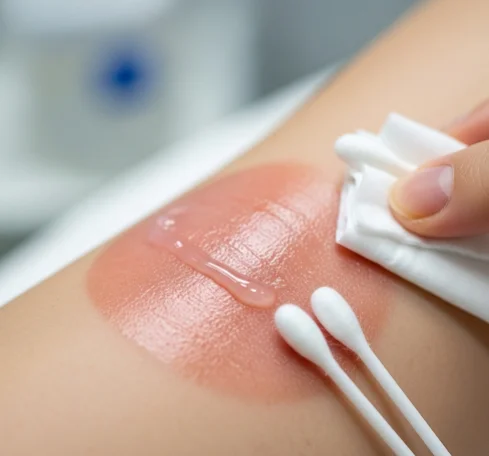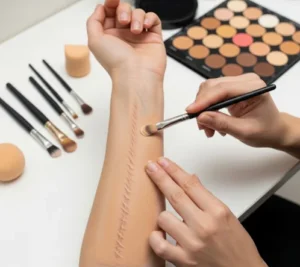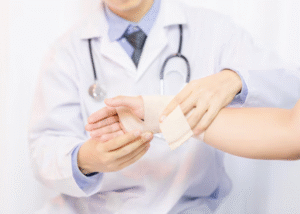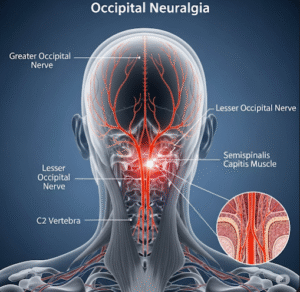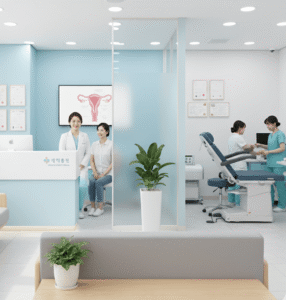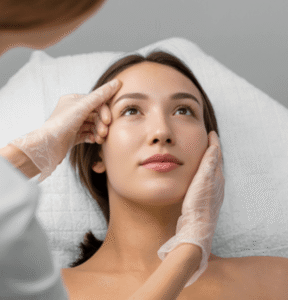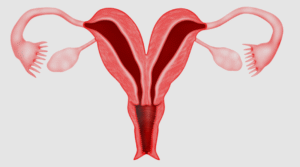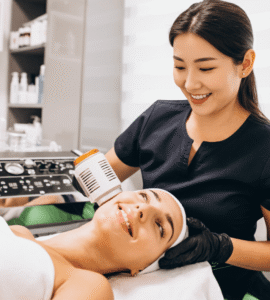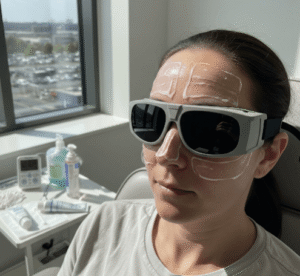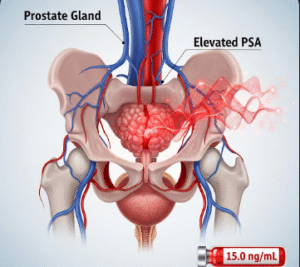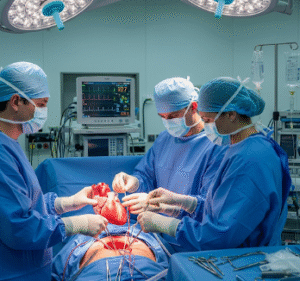What it is
→ Wound care after laser refers to the structured healing and skin recovery process following laser-based dermatological or cosmetic treatments.
→ Laser procedures may include ablative lasers (like CO₂ or Er:YAG, which remove outer skin layers) or non-ablative lasers (which target deeper tissues while sparing the surface).
→ Depending on the type and intensity of the laser, the skin may experience redness, swelling, peeling, or micro-wounds that require specific care to ensure proper healing and optimal results.
→ The aim of post-laser wound care is to promote faster healing, minimize infection risk, reduce scarring, and prevent pigmentation changes.
Why it’s done
→ Proper wound care after laser treatments is crucial to:
- Prevent infection in freshly treated areas.
- Reduce inflammation and discomfort during recovery.
- Promote smooth healing with minimal scarring.
- Prevent hyperpigmentation or hypopigmentation, especially in sun-exposed areas.
- Maximize treatment results, such as wrinkle reduction, scar improvement, or pigmentation clearing.
→ Without careful aftercare, the benefits of laser therapy can be undermined by complications, poor healing, or cosmetic dissatisfaction.
Alternatives
→ Alternatives to formal wound care instructions include:
- Generic self-care routines → using random moisturizers or creams without medical guidance.
- Home remedies → aloe vera, honey, or oils (may soothe but not medically optimized).
- Over-the-counter ointments → some provide hydration but may not prevent infection.
→ These alternatives may help mildly, but they lack the precision of a dermatology-guided wound care protocol, especially after aggressive laser procedures.
Preparation
→ Before undergoing a laser procedure, patients should be prepared for wound care by:
- Receiving counseling → dermatologist explains expected healing time and aftercare steps.
- Arranging supplies → soothing ointments, sunscreen, gentle cleansers, and healing creams.
- Planning downtime → scheduling procedures when recovery time (several days to weeks) is manageable.
- Stopping harsh skincare → avoid retinoids, exfoliants, and strong acids several days before the procedure.
- Photographic records → clinics often take baseline photos to compare healing and results.
How it’s Done
→ Wound care after laser involves daily steps during recovery:
- Immediate phase (first 24–48 hours)
- Apply cold compresses to reduce swelling.
- Use prescribed antibiotic ointments or healing gels to prevent infection.
- Avoid touching, scratching, or peeling the skin.
- Early healing (days 3–7)
- Cleanse gently with non-foaming, fragrance-free cleansers.
- Apply thick moisturizers or occlusive ointments to maintain hydration.
- Avoid makeup until peeling and redness subside.
- Mid-recovery (week 2–4)
- Continue daily moisturization.
- Introduce soothing creams with hyaluronic acid, ceramides, or panthenol.
- Strict sun protection with SPF 50+ is mandatory to prevent pigmentation changes.
- Long-term care (after 1 month)
- Resume active skincare (retinoids, vitamin C, exfoliants) only when dermatologist approves.
- Consider maintenance treatments like hydrating facials or gentle peels for prolonged results.
→ For non-ablative lasers, downtime is shorter, and care is usually limited to moisturizers and sunscreen.
→ For ablative lasers, care is more intensive, with several weeks of strict wound management.
Recovery
→ Recovery varies depending on the type of laser:
- Non-ablative lasers → redness and swelling for 1–3 days; minimal downtime.
- Ablative fractional lasers (CO₂, Er:YAG) → redness, peeling, and crusting for 5–10 days; full healing may take 2–4 weeks.
- Deep resurfacing lasers → redness can last up to 6–8 weeks, with gradual improvement.
→ General recovery guidelines:
- Avoid direct sun exposure for several weeks.
- Use broad-spectrum sunscreen every day.
- Stay away from saunas, hot showers, and vigorous exercise in the first week.
- Do not pick at scabs or flakes to prevent scarring.
→ Full skin rejuvenation results are often visible after several weeks to months, depending on the treatment.
Complications
→ Without proper wound care, complications may arise:
- Infection → bacterial or viral (e.g., herpes reactivation).
- Hyperpigmentation → dark spots in treated areas, especially in darker skin tones.
- Hypopigmentation → light patches where pigment does not return.
- Scarring → rare, but possible if wounds are picked or infected.
- Prolonged redness → some patients may have erythema lasting several weeks.
→ Careful adherence to wound care instructions greatly reduces these risks.
Treatment options in Korea
→ Korea is renowned for advanced dermatology and cosmetic laser care, with excellent post-procedure wound management protocols.
- Cutting-edge clinics → Seoul and Busan house top dermatology centers with extensive laser expertise.
- Personalized aftercare kits → many Korean clinics provide patients with healing creams, sunscreens, and instructions after laser procedures.
- AI skin imaging → used to track healing progress and detect potential complications early.
- Integrated care → dermatologists combine medical wound care with K-beauty skincare strategies for both healing and aesthetics.
- Soothing recovery programs → clinics often offer follow-up sessions with cooling masks, LED light therapy, or oxygen facials to speed healing.
- Medical tourism support → international patients benefit from structured recovery guidance, often in English, ensuring safe aftercare.
→ With Korea’s combination of medical precision, cosmetic expertise, and holistic recovery care, wound care after laser treatments is among the best in the world.

